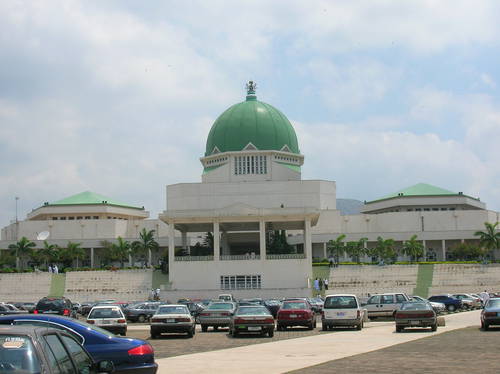At the House of Representatives public hearing of the obnoxious NGO regulatory bill last week, it was reported that everybody who spoke at the hearing condemned the bill and called for the National Assembly to block its passage. It was a desirable anticlimax for a bill that seeks to put non-governmental organizations (NGOs) under the armpit of the government. It was a dramatic outcome for a bill that had, before now, been condemned by Nigerians for its obnoxious intents suspected to be aimed at crippling civil society organizations in delivering on their core mandates of providing services in areas neglected by governments. It was reported that every speaker at the public hearing took times to upbraid the bill, as well as its intendment to criminalize NGO activities.
It is good that the controversial bill suffered life-threatening glitches as a result of the cold shoulders the public gave the bill since it was proposed at the House of Representatives. That should be the end of the bill, albeit we know the proponents might still pursue the bill, but it is practically dead. The lack of interest in seeing to the success of the bill itself stems from the public uproar attending the bill and its proponents. The enlightened public saw the bill as an act of overzealousness by the legislature to cage the critical civil society, control a sector it lacks both the power and capacity to pocket. The bill itself seeks to violate the sacredness of non-governmental players who are naturally equipped to provide fill-in services where the government has either failed or lacks the capacity to operate.
By its nature and definition, non-governmental organizations do not need governmental control. If they do, they do not merit the tag with which they are universally known. If governments then seek to regulate and dictate to NGOs, then they become a subset of government, which in itself is a gross violation of their nature and mandates. I don’t know what actually necessitated this opaque bill, but whatever it is that brought such a weird idea in the heads of the proponents of that infamous bill was clearly a gross misnomer that flowed from very naïve and primitive power acquisition tendency that enslaves the Nigerian politician. It flowed from a weird notion that the politician is all-powerful and possesses the power of life and death, even over issues he knows he has no power over. That the Nigerian public rose in a unitive crescendo to condemn the bill shows that indeed, Nigerian society still retains its self-regulatory props that serve as checks over those that seek to vitiate its potency.
There is no need to regulate NGOs. This does not mean giving a license to the well-known abuses the sector has faced in Nigeria, but the country’s laws and ordinances still have enough room to arrest these predilections and make NGOs law abiding without necessarily seeking to cap them. Within the framework of the Nigerian legal system, there is still ample room to check the abuses and excesses that have been brought to disfigure the operations of NGOs in Nigeria. The actors and operators of the NGOs are still Nigerian citizens answerable to the country’s laws. Proprietors of NGOs who abuse their organizations financially are liable to prosecution by the Nigerian legal system for financial crimes. Those who perpetrate other forms of abuses are liable to trial by the country’s legal system. That one operates an NGO or commits crimes under the cover of NGOs does not grant immunity from prosecution and trial. No one can make any excuse for operators of NGOs that indulge in reckless conduct against the state, the citizenry and other sundry national interests.
I think where the huge hoopla against the plan to regulate NGOs arose was in trying to cage NGOs through the legal process and criminalize activities of well-known non-state actors that help build a society. The problem was in singling NGOs for control when indeed, they are not cut for the kind of farcical control the state has over governmental agencies and sectors. The problem was in trying to annex the conduct and control of NGOs so as to make them subsets of the government. By that, NGOs are bound to lose their uniqueness and independence and thus, cease from being non-governmental organizations to become governmental actors. By seeking to criminalize the conduct of NGOs, the bill seeks to muffle and stifle them so as to become irrelevant in playing critical roles they play in the affairs of the country. This is unacceptable.
Any system that wants to take over the conduct of affairs of NGOs wants to levy a maximum state with a unitary control of lives therein. The NGOs exist because there exist noticeable gaps in the conduct of government business. They are as legal as the formal sectors of government and all operate within a given legal system that guarantees each equal opportunities to operate in their respective spheres. There is no interface and no overlap of roles and structures. Their roles are as distinct as their model of operation. Their sources of strength differ and their operational spheres are not the same.
So any bill that seeks to bring NGOs under strict control fights the natural order. Such a bill is queer because it wants to annex activities outside government and remove the independence that should naturally guide the operations of NGOs. Regrettably, in Nigeria, many NGOs draw their funding from the government and operate like extended branches of the government, but it is a fact that where those organizations are funded by the government, nothing should be made to dictate to them on how they execute their core mandates. This has provided a weak link in the relationship between governments and NGOs such that the government feels it can control such NGOs. This shouldn’t be the case as it is advisable that NGOs take their businesses outside government as much as possible so as to maintain their independence and not give government actors such weird dreams of bringing NGOs under control.
However one sees it, NGOs are non-governmental players and being such, the government, be it in the executive, legislative or judiciary tiers, must refrain from tying NGOs to their apron strings and spoon-feeding them as they like. If this happens, they are no longer NGOs but governmental sectors answerable to the whims and idiosyncrasies of those in government. This way, NGOs lose their important roles as gap-fillers who exist to complement governments by working on areas that are either neglected or not properly attended to by governments. By their nature, NGOs are self-regulatory and draw their control from their funders and the critical mandates they execute. They are required to adhere to strict financial probity by their funding agencies and are required not to conduct their activities in ways that violate the laws of their countries of operation or carry out illegal activities that bring them in conflict with areas of their operation. Where they run contrary to these critical regulations, the source of their support is cut off and they die off. This is a sufficient regulatory framework to guide the activities of NGOs the world over and this neither encourages excesses and illegalities the so-called NGO regulatory bill seeks to enact into law. They don’t require special laws that aim at controlling them outside the above-stated regulatory ambits of existing state laws.
One hopes the proponents of the NGO Regulatory bill have learnt their lessons from the technical defeat the bill suffered during the public hearing and not attempt to stubbornly ride the wind by pushing the obnoxious bill further. They should allow the bill to die off as a badly-intentioned dream that came awry simply because there is no ground for its sustenance. Let the country move on and not be further troubled with such horrible bills and let the National Assembly bring itself to attend to other pressing national issues than such clearly misguided bills.
Peter Claver Oparah writes from Ikeja, Lagos. You can reach him at [email protected] .
A Fitting End To The NGO Regulatory Bill By Peter Claver Oparah





